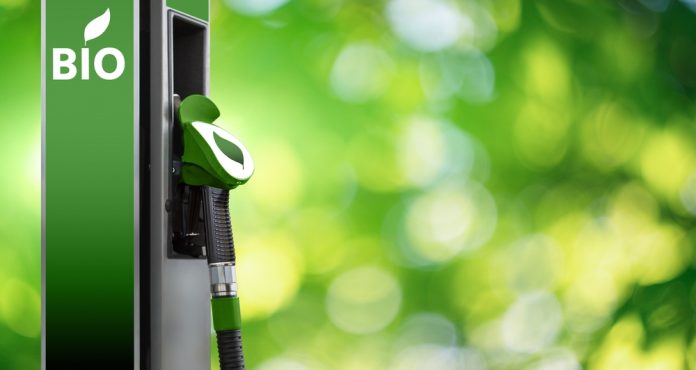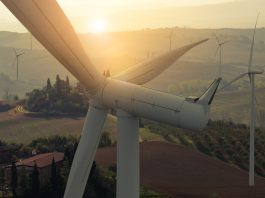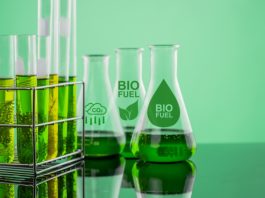In a landmark move toward a sustainable energy future, the United States Department of Energy’s (DOE) Loan Programs Office (LPO) has announced the closure of a $1.67 billion loan guarantee to Montana Renewables, LLC (MRL).
This significant investment will support the expansion of MRL’s renewable fuels facility in Great Falls, Montana, enabling it to produce sustainable aviation fuel (SAF), renewable diesel, and renewable naphtha on a larger scale.
This project reflects a growing national commitment to renewable energy as a cornerstone of the US strategy to tackle climate challenges while driving innovation and economic opportunity in rural and agricultural communities.
With SAF emerging as one of the most viable solutions for decarbonising air travel, Montana’s renewable fuels facility stands at the forefront of a transformative shift in energy production.
Revolutionising renewable fuels production in Montana
Montana Renewables is poised to become a global leader in sustainable aviation fuel production.
Since its launch in late 2022, the MRL facility has been producing approximately 140 million gallons of biofuels annually, primarily renewable diesel.
With the DOE’s support, the facility will scale its output to 315 million gallons per year, with SAF taking centre stage.
This expansion aligns with the Biden-Harris Administration’s SAF Grand Challenge, aiming to produce 3 billion gallons of SAF annually by 2030 and 35 billion gallons by 2050.
By reducing the aviation sector’s greenhouse gas emissions, SAF represents one of the most viable near-term solutions to decarbonising air travel, a sector responsible for 11% of US transportation emissions.
Economic and environmental benefits
The Montana project will leverage vegetable oils, fats, and greases to produce SAF, renewable diesel, and renewable naphtha, generating fuels with significantly lower greenhouse gas emissions compared to traditional jet fuel.
By 2030, MRL expects to contribute approximately 12% of global SAF supply, including half of North America’s SAF production.
Beyond environmental gains, the facility’s expansion promises substantial economic benefits. At its peak, the project will create 450 construction jobs and 40 permanent operational positions, many of which are union roles.
Empowering local communities and supporting education
MRL’s parent company, Calumet, has long supported the Great Falls area, investing in local educational initiatives in science, technology, engineering, arts, and mathematics (STEAM).
As the facility grows, MRL remains committed to engaging with community and labour groups to ensure good-paying jobs and meaningful community benefits.
Moreover, many of the surrounding Great Falls communities, identified as disadvantaged by the Climate and Economic Justice Screening Tool, stand to gain significantly from the project.
With an emphasis on hiring local talent, the project is a testament to renewable energy’s potential to uplift underinvested regions.
Transforming US energy infrastructure
The DOE loan is provided under the Energy Infrastructure Reinvestment (EIR) programme, which supports projects that repurpose or reduce emissions from existing energy infrastructure.
In this case, a portion of an oil refinery will be converted to renewable fuels production, reducing the carbon intensity of operations.
This initiative represents a critical step in modernising US energy infrastructure to meet the demands of a greener future.
By combining cutting-edge technology with sustainable practices, the project demonstrates how existing facilities can be retooled to support a cleaner energy economy.
Why expanding US renewable fuels production matters
The US transportation and industrial sectors are significant contributors to greenhouse gas emissions. Expanding renewable fuels production, particularly SAF, is essential to achieving national decarbonisation goals.
Increasing domestic SAF production reduces dependence on imported fuels, strengthens energy security, and positions the US as a global leader in sustainable energy innovation.
Additionally, the growth of the renewable fuels sector creates opportunities for rural and agricultural communities by utilising feedstocks like fats, oils, and greases.
As the demand for clean energy grows, projects like MRL’s expansion in Montana highlight the importance of federal investments in renewable fuels.
These initiatives not only address climate change but also foster economic growth and energy independence, proving that sustainability and prosperity can go hand in hand.
With the Montana Renewables expansion underway, the US is taking a decisive step toward a cleaner, more sustainable energy future.
As we face the challenges of climate change, initiatives like this underscore the critical role of renewable fuels in building a resilient, low-carbon economy.









